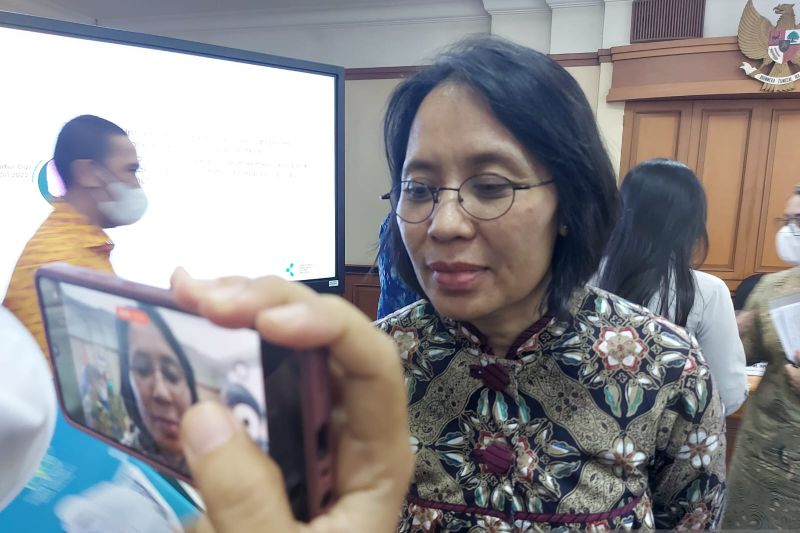“The provision of biscuits has been carried out since 2016. Indeed, there were guidelines on providing additional food that can be done in two ways, namely local or manufactured food,” the ministry’s director general of public health Maria Endang Sumiwi said.
She made the remarks at a press conference on the ‘2022 Indonesian Nutrition Status Survey (SSGI)’ in Jakarta on Friday.
In 2016, the authorities considered a number of requirements for meeting the complex nutritional needs of children to ensure their growth and development, and decided they could only be managed by manufacturers, she said.
Meanwhile, providing ready-to-eat local food options would have required a bigger effort from posyandu cadres.
“Because there are many details and requirements to fulfill the nutrition intake, the policy at that time chose manufactured food. While for the provision of local food required bigger efforts,” she explained.
Earlier, the policy drew criticism from President Joko Widodo, who said that providing biscuits was an easy way out, but it was not on target for ensuring nutritional balance in children.
The same criticism was also made by a number of nutrition experts, professors, and Health Minister Budi Gunadi Sadikin.
Based on their inputs, the Ministry of Health then replaced biscuits with local foods containing animal proteins, such as eggs, fish, meat, and milk.
“We started the transition in 2022 in 16 districts first because we wanted to see the implementation of this new method. The biscuits were replaced with local food prepared by posyandu cadres that met the nutritional and protein needs,” she informed.
The 16 districts were spread across the provinces of East Java, Central Java, and a number of areas outside Java, she added.
Based on the year-long evaluation, the posyandu cadres in the 16 pilot districts successfully managed to produce locally processed food for meeting children’s additional food requirements. Therefore, starting this year, the scope of the program has been expanded to all regions of Indonesia.
“It turns out that the pilot project was successful. This year, the program will reach more regions,” Sumiwi said.
This year, the Ministry of Health has allocated a budget for local food procurement for 389 out of 514 cities/districts that have low and medium fiscal capacity.
“We will budget it through fund transfers to the regions,” she added.
As for the 125 regions with high fiscal capacity, a similar program has been budgeted through the local regional budget.
Related news: Ministry examines biscuits used as additional food against stunting
Related news: BRIN develops nutritious biscuits to tackle anemia in pregnant women
Related news: Avoid giving instant porridge to babies to prevent stunting: Jokowi





































